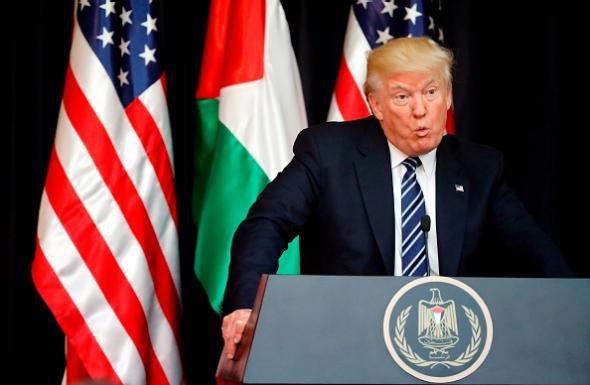Speaking in the West Bank today about the ISIS-claimed bombing in Manchester, England that killed 22 people, Donald Trump called the perpetrators of the terror attack “losers”:
So many young, beautiful innocent people living and enjoying their lives, murdered by evil losers in life. I won’t call them monsters because they would like that term. They would think that’s a great name. I will call them, from now on, losers, because that’s what they are. They’re losers. And we’ll have more of them. But they’re losers. Just remember that.
Some observers condemned Trump’s words as crass and superficial, questioning the appropriateness of using the same epithet to describe an ISIS killer that he’s previously used to describe Rosie O’Donnell and Ted Cruz:
While Trump is indeed well-known for using loser as a generic and more or less meaningless insult, there is actually some logic to deploying it in this instance, as he explained. ISIS has successfully recruited young men across the world by convincing them via social media that by joining the group they will become powerful, important contributors to a glorious collective mission. Using loser to create the impression that the Islamic “State” is in fact a rapidly deteriorating refuge of bottom-feeding criminals is, in addition to being close to the actual truth, of a piece with wider American/European efforts to prevent ISIS attacks by preventing ISIS terrorists from being recruited online in the first place.
The problem is not that Trump calls terrorists losers, but that he weakens a potentially useful word by throwing it around it carelessly elsewhere. In his own life, Trump behaves as if anyone who has not achieved his materialistic definition of success—anyone who isn’t rich enough to install gold faucets in the bathroom of their private plane, basically—is a loser. He insists that anyone who has ever lost, at anything, should feel ashamed—a petulant, childish attitude that requires him to go to ridiculous lengths of illogic in arguing that, for example, he didn’t really lose the popular vote. And while the Islamic State is certainly a spiritual and practical failure, our response to it doesn’t need to involve endorsing Donald Trump’s own weird personal definition of the word loser.
There’s a definition of the term, though, that avoids this downside, a definition that I would argue is in fact the common one among decent human beings: of the loser not merely as someone who has ever lost, but as someone who reacts poorly to losing—who cheats and blames his or her way through life’s inevitable unfairnesses and personal failures. In this understanding, a person who reacts to feeling, or being disenfranchised by killing children and teenagers*—rather than by, say, engaging in political organizing or some other form of non-murderous activism—is, indeed, a loser. Of course, so is someone who reacts to the richly self-induced failures of his presidential administration by making absurd accusations about Barack Obama wiretapping his apartment. So maybe Trump’s speech Tuesday morning is a case of getting the right message from the wrong messenger.
*Update, May 23, 5 p.m.: This sentence originally stated that 22 teenagers and children were killed. We don’t yet know the ages of all of those who died.
